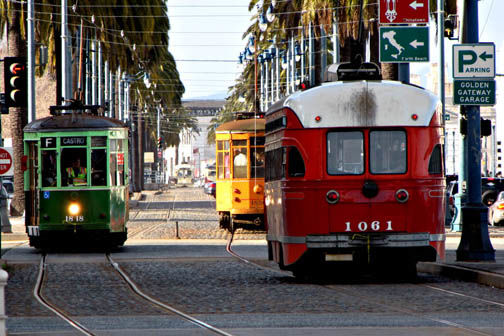Money saving tips for international students – let’s talk transport.

San Francisco
On the subject of reducing personal costs while abroad, the most important of the saving tips for any international student is to create a budget, and then stick to it!
There are different areas one can look to stay within budget. One of them is reducing transport and related costs.
TALK English Schools international students will be aware that our many of our course fees include accommodation and transportation to and from the school, as well as the off-campus activities we offer the student body. But we know that you also want to get to see places and do stuff independently. Remember, your Activities Director and TALK staff will be able to advise students more specifically about saving tips around where and how to buy a bicycle, car rental deals or how to obtain student passes for public transport.
Saving tips for those transport costs in a foreign city:
- The most important saving tip for international students to get around in their host city is – if possible – to use a bicycle. Invest in a 2nd-hand bicycle through a local dealer or online, or even through your school. There is probably a regular supply of bicycles from the previous batch of student bicycle-owners, that the school can offer you.
- Go by foot to places that are close by. It’s free, plus you eliminate the need and expense of gym fees!
- Rollerblade or skateboard it! With a helmet. Or buy a scooter (again, a helmet is required.)
- Use public transport. TALK English Schools are in big cities that offer public transport, some of which – like the T in Boston – is fantastic. Many metro train and bus services offer student travel discounts – research these offers on the city website.
- Inquire whether the International Student ID card (ISIC) – accepted all around the world – or an equivalent pass, which offers international students’ discounts on everything from food and travel to sightseeing and exchanging money at the airport.
- If you buy a car for the period you are studying abroad, buy a fuel-efficient car. For example, a car with a stick shift is more fuel efficient than automatic. Then, comparative shop around for car insurance.
- Carpool. Share a car or take turns sharing a car will save lots of money on gas. Plan your car trips for grocery shopping and other errands.
- A map or GPS app – knowing the quickest way from A to B – is a time and cost saver!
You can reduce your expenses a lot if you follow these money saving tips, and – hey – all that extra cash suddenly becomes available for worthwhile pursuits like travel and adventure!



















